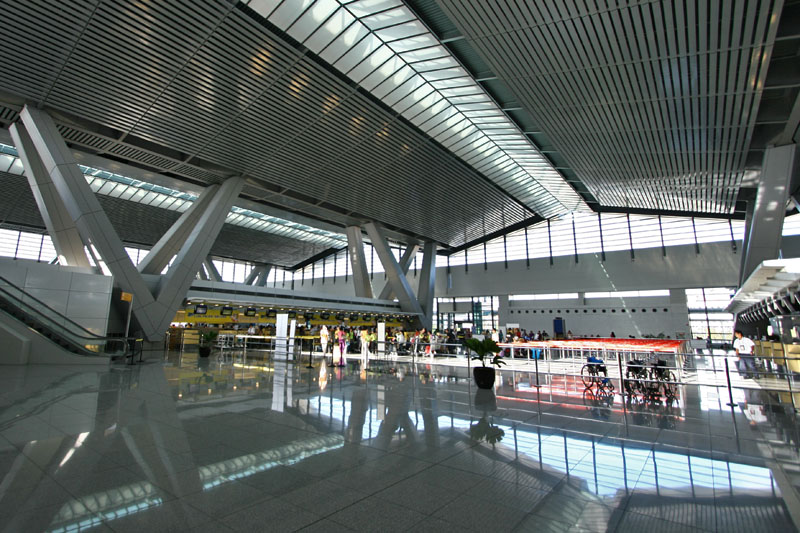Lifestyle
Heightened security at the airport — What it means

The biometrics of the foreign passengers are also being double-checked. (File Photo By Mithril Cloud/Wikimedia commons, CC BY-SA 3.0)
MANILA — Immigration officers have always been strict when checking passports and documents. How can we assure that heightened security measures are being implemented? Are there differences in performing their jobs during ordinary days compared to when an airport is on “full alert”?
In an interview with the Philippine News Agency (PNA) on Wednesday, Immigration Port Operations Division chief, Grifton Medina, explained the heightened security measures being done.
Currently, all the airports in the country are on “full alert” following the Jolo church bombing last January 27.
Similarly, the Bureau of Immigration (BI) has declared a “heightened alert” against foreign terrorists. BI earlier issued a statement that this announcement was made because the Islamic State (IS) has apparently claimed responsibility for the attack.
Medina explained that BI officers are stricter during “heightened alert” status.
“We are stricter in checking the documents. We check those documents three times,” he said, adding that they also scrutinize the profile and are stricter in assessing foreign passengers during this time.
“We scrutinize them, especially those that may be connected with the terrorists,” he remarked.
The BI is connected with the international police (Interpol), as well as other agencies abroad.
Medina emphasized that if the immigration officers receive a “red notice” from the Interpol, they make sure to block the passenger at the arrival area.
“We communicate it with the airlines. Once the passenger is in the ‘red notice’ (of the Interpol), we ensure to watch over that passenger, even while in the aircraft,” he said.
The biometrics of the foreign passengers are also being double-checked.
As part of the “heightened alert” status, immigration officers have been instructed not to allow entry of passengers who could not explain clearly their purpose for coming to the country. These passengers should be booked for the earliest possible flight back to their point of origin.
Passengers will be the ones to shoulder the flight bookings, if this happens. What if the passenger would say he or she does not have the money to rebook a flight?
“They can ask assistance from their Embassy. Or the airline must shoulder the expense,” Medina said.
He emphasized that this kind of passengers may pose a threat to the country.
“These are likely persons of interest or a suspect, or someone connected with the terrorists,” he explained.
Another reason for the officers to doubt this kind of passengers, according to Medina, is when they say they will look for a job here.
“Where will they get the funds? We must also keep an eye on those who come here with lots of money,” he continued.
Medina emphasized that these measures are being done because they should not wait for these passengers to commit a crime in the country. These passengers may be excluded or blacklisted so they could not enter the country, he said.
Whether it’s an ordinary day or during “heightened alert” status, the Border Control and Intelligence Unit (BCIU) is present at the airports.
However, during “heightened alert” status, the BCIU is asked to be more vigilant.
During ordinary days, the chief and the other officers of the BCIU are on rotation or are on-call, but during “heightened alert”, no BCIU officer is allowed to take a leave, according to Medina.
“BCIU communicates with other ASEAN countries. They track and wait for the passengers even before they queue at the Immigration counters,” he said.
Medina noted that they keep an eye also on transiting passengers or those who use the Philippines as a gateway, and even foreigners who would go to Mindanao.
There were instances when the transiting passengers were really persons of interest, he said. He has also ordered an increase the officers manning the southern borders.
Meanwhile, Medina said he has no idea when the “heightened alert” status would be lifted.
“But my recommendation is to wait after the Chinese New Year and the Bangsamoro election to finish (before lifting it),” he said.





















